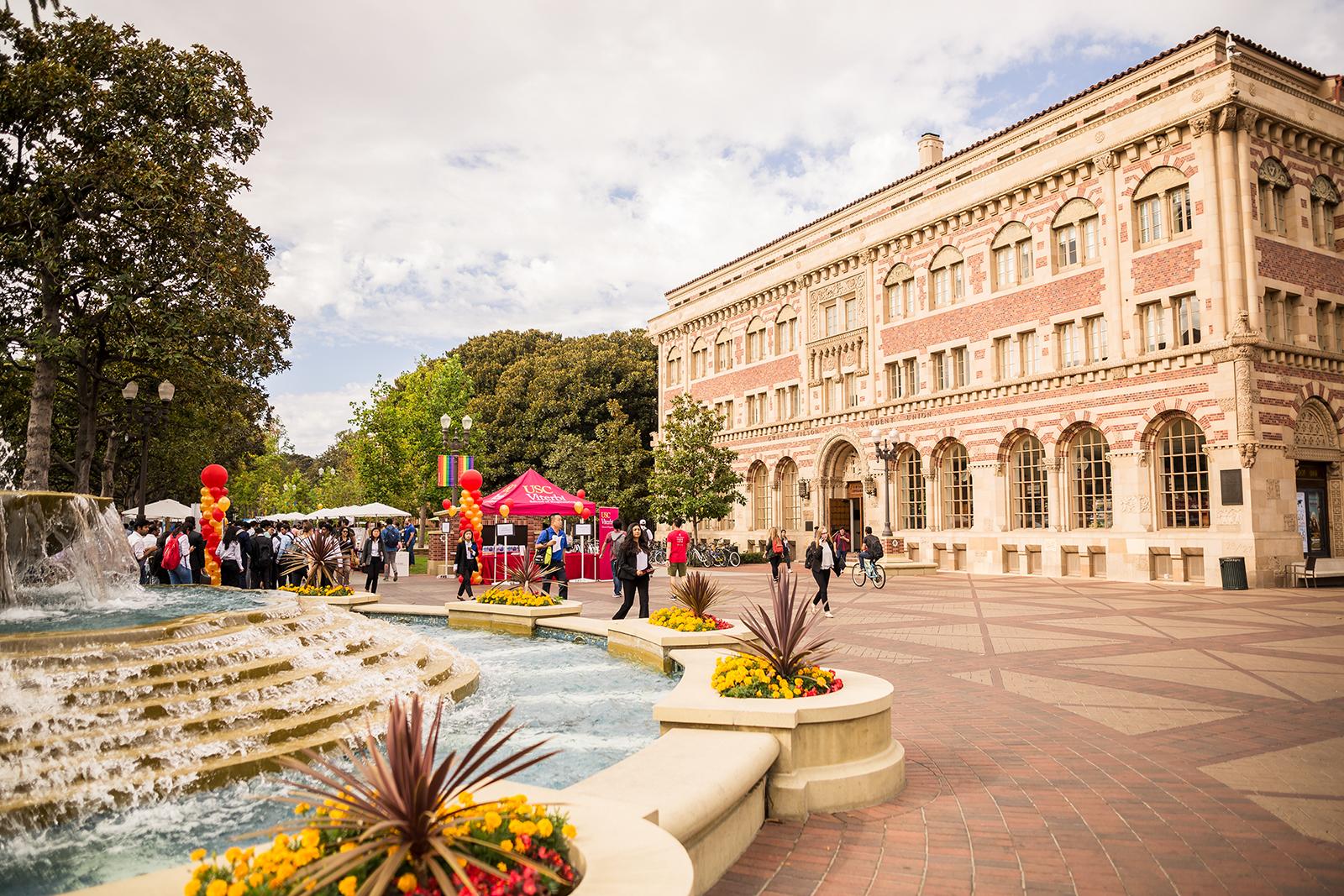California bans legacy admissions at higher education institutions
The University of Southern California is pictured. Gov. Gavin Newsom recently passed a bill banning legacy and donor-preference admissions at all California universities.
(Courtesy of Matt Lin)
By Lilly Leonhardt
Nov. 26, 2024 8:02 p.m.
A new law will soon ban legacy admissions across California universities.
Gov. Gavin Newsom signed a bill in September banning all California higher education institutions from considering donor status or whether a candidate had a family member attend the institution as part of admissions decisions beginning in September 2025. While the UC System has not considered legacy or donor status in decades, this bill could lead to considerable shifts in California private higher educational institutions, said California Assemblymember Phil Ting, the author of the bill, in a press release.
Several California universities – including the University of Southern California, Stanford University, Santa Clara University and the Claremont Colleges – currently consider legacy and donor status in their admissions processes.
This bill was drafted with the intention of advancing equity, Ting said in the press release.
“Hard work, good grades and a well-rounded background should earn you a spot in the incoming class – not the size of the check your family can write or who you’re related to,” he said in the release.
In an emailed statement, USC said all its students meet high academic standards required for admission. Those who collaborated on the bill indicated that many of these colleges were supportive of the law’s passage.
Studies have shown that changes in university demographics occur when legacy admissions are banned. The New York Times found that legacy students currently have a 37% admission rate to the school their parents went to but an 11% admission rate to similarly elite schools that their parents did not attend.
Furthermore, the Times found that most legacy students are more likely to be white and about 65% have parents in the top 5% of highest incomes.
While legacy admissions are not a consideration for the UC admissions process, several UCLA students said they supported the bill. Will Ryan, a second-year philosophy student and member of Bruin Democrats, said college admissions should be decided solely on the basis of merit.
“Banning these schools from trying to inflate their endowments by getting rich legacy donors is an admirable cause,” he said.
Assemblymember Ting collaborated with the student-run organization Class Action, which fights for equitable admissions to elite colleges, to draft the bill. Ryan Cieslikowski, co-founder and lead organizer of Class Action, said the advocacy group identified legacy admissions as the highest priority issue among students.
Other organizations such as Hispanas Organized for Political Equality and the Campaign for College Opportunity campaigned with Assemblymember Ting to pass the bill, intending to provide support for constituents who would be disadvantaged by legacy admission practices.
María Morales, the statewide policy director of HOPE, said she believes the bill will give more opportunities for Latino students to pursue higher education.
“The majority of Latinx students, in California and broadly, are the first in their families to pursue a higher education,” she said.
However, not all believe that this bill is a silver bullet to creating equity in higher education.
Valerie Johnson, the legislative affairs manager at the Campaign for College Opportunity, said affirmative action – which the Supreme Court banned for higher education in a 2023 decision – is also important for achieving educational equity. CQ quote below
“We are strong proponents of the power of promoting diversity in our state’s colleges and think that affirmative action is a powerful tool that can uplift communities who have historically been minoritized and who have historically been shut out from some of our universities,” she said.
[Related: Supreme Court overturns affirmative action in 6-3 decision]
Eddie R. Cole, a professor of education and history at UCLA, also said one unintended consequence of this bill could be taking away opportunities from beneficiaries of affirmative action in the late 20th century.
“You also have to think about the nuance of what it means for a lot of families from different racial groups who are just now starting to have a second or third generation of their family be able to apply for college, and now suddenly they don’t get the benefit of being from a family of alumni,” he said.
